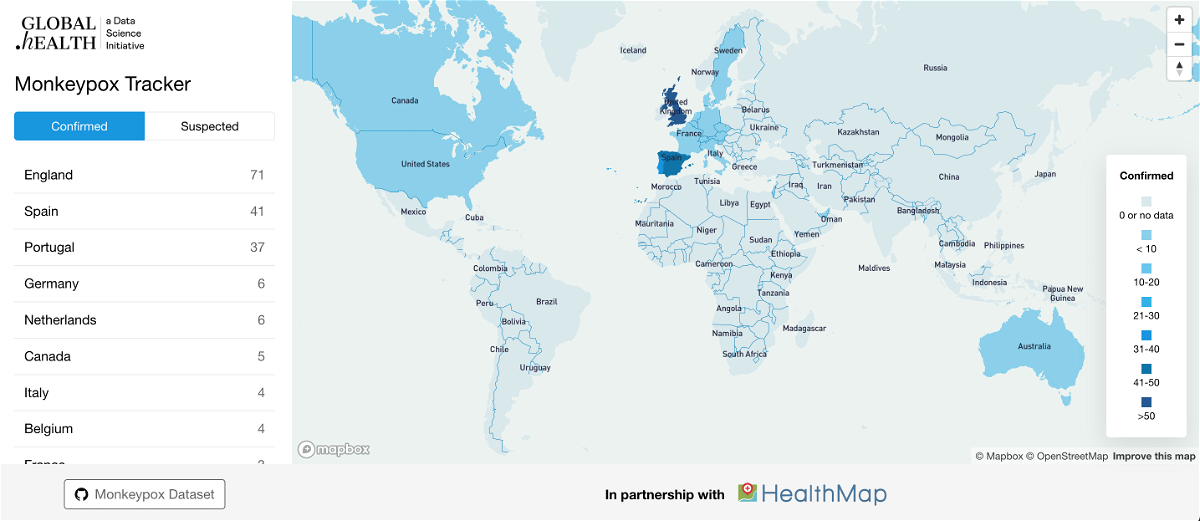Monkeypox: What Southern Coloradans need to know about the viral disease
COLORADO SPRINGS, Colo. (KRDO) -- Concerns are growing about the latest viral disease to pop up in America: monkeypox. Six suspected or confirmed cases have now been reported in the United States.

While no cases have been confirmed in Colorado, many still have questions about the virus and if it will eventually spread in our state.
“Usually we see it in West Africa, but because we're a world economy and lots of people travel, we're starting to see these cases of the people have been exposed to this virus coming from Africa to the United States, and the most recent case came from Canada into Massachusetts,” said Dr. Chris Urbina, the Interim Medical Director for El Paso County Public Health.
Monkeypox is related to smallpox, though less severe.
According to the Centers for Disease Control and Prevention, symptoms typically start out flu-like with fever, headache, and exhaustion.
Within one to three days (sometimes longer) after the fever, the patient develops a rash, often beginning on the face and then spreading to other parts of the body.
While the virus is incredibly rare, the CDC recently notified local health departments through their Health Alert Network to start monitoring for monkeypox.
El Paso County Public Health says they immediately sent information to health care providers.
“I think that's really the first indication we have to look for it, to actually find it, because it looks like a lot of other diseases," said Dr. Urbina. "It can look like syphilis and it can look like what we see in herpes simplex, it can look like other infections. So people might not have suspected. So now that our antennas are up, people can actually test for it. That's what we're monitoring, not only in Colorado but across the country."
Monkeypox is transmitted through close contact with bodily fluids or respiratory droplets, which means a lot of the same precautions you’ve been taking for COVID-19, which should protect you against monkeypox too.
"We can always take precautions," said Dr. Urbina. "Obviously, washing your hands, not coming in contact with wild animals, wearing a mask and appropriate protective gear are very important. And if you're sick, stay at home. I think those are the things that will protect you not only from COVID but from influenza and other respiratory illnesses. So I think if you do all of those things, you'll also be protected against monkeypox."
While monkeypox can be deadly, most patients recover after 2 to 4 weeks.
"It is deadly, but people generally recover from it," said Dr. Urbina. "It depends on your immune system, just like any other infection. But there's no specific treatment. So supportive care is really the only thing that we can do.”
Right now the United States is releasing monkeypox vaccines from its stockpile, but don’t expect to be able to get a shot at your neighborhood pharmacy.
Currently, the shots are only going to people with a high risk of infection, like health care workers treating monkeypox patients.
Dr. Urbina says it's important to note that you must have close physical contact with someone infected with monkeypox to come down with the illness.
"I think people think that it's readily transmissible and it's not," said Dr. Urbina. "You have to have close physical contact with the lesions themselves, or close, intimate contact. So actually, you're holding and kissing somebody who has as the infection with large respiratory droplets. I think as people understand that, that's really the most important thing that I want to get across. And just because you're from Africa or just because you have intimate contact with somebody from Africa doesn't mean necessarily you're going to be exposed to monkeypox. We did this with HIV, we did this with COVID, we did it with lots of other infections. People imply that the infection is caused by an ethnicity, a race, or sexual contact, and that's just simply not true."
For more information on monkeypox, click here.
Local health information can also be found on the El Paso County Public Health Department's website.
